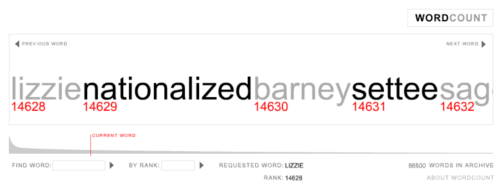I did a group book review for Beverly Gage’s class on American Conservatism last Spring, covering 4 books that deal in one way or another with the history of Intelligent Design. Best of the bunch was definitely Ruse’s book, The Evolution-Creation Struggle. (The others were Creationism’s Trojan Horse, Doubts About Darwin, and the 3rd edition of Ed Larson’s excellent Trial and Error.) In particular, I think Ruse’s book is relevant to all the pronouncements about the status of ID as science/pseudoscience/junk science and the frequent invocations of the mystical scientific method, in the wake of Kitzmiller v. Dover. And since I saw other sites mentioning the book recently, I thought I’d post that portion of the review. I also stumbled across this interesting interview with Ruse on the book.
My review:
Michael Ruse—who cultivates a great oval beard to emulate Darwin—has written about fifteen books, mostly on evolution, and edited about that many more. Ruse has a gift for melting down detailed historical scholarship and reforging it into something grander, capturing the broad themes in the history of evolution. His latest offering, The Evolution-Creation Struggle, demonstrates the historical continuity of thinking about creation, evolution, and the relationship between religion and science, putting Intelligent Design into context as a philosophical continuation of the same questions that partially-overlapping circles of evolutionists and Christians have been pondering and debating for hundreds of years.
Ruse begins by describing the cultural context in which evolution first arose, which is crucial for understanding the tensions and links between evolution and religion, then and now. Ruse argues that though “the eighteenth century did see much scientific activity, and some was certainly pertinent to the issue of evolution,” “metaphysical ideas played as big if not a bigger role in the origins of evolutionism.” Particularly, ideas of progress heavily informed the theories of virtually every prominent evolutionist before the 20th century, with the partial exception of Darwin himself. Ruse compares the spread of evolution after Darwin’s Origin of Species to the formulation of a religion from Jesus’ teachings, with T. H. Huxley—Darwin’s bulldog—playing the part of Saint Paul.
Ruse invokes a tripartite distinction of “pseudoscience,” “public science” and “professional science” to classify early work on evolution, demonstrating a remarkable parallel to Intelligent Design. He describes all the evolutionary theorizing before Darwin, from Lamarck to Robert Chambers, as pseudoscience, because it was derived as much from ideology as from empirical observations. With Darwin, evolution became public science; it was intellectually and empirically grounded, but it had little bearing on the actual practice of science. Even the celebrated evolutionary apologist Huxley, a great innovator in biological education, found room for only half a class on evolution in his two-year, 150-lecture course; while he championed the social and (anti-)religious dimensions of evolution in public speeches, he did not find it relevant for future scientists and doctors. Only with T. H. Morgan, and to a lesser extent Ernst Haeckel, did evolution become the pursuit of professional scientists, somewhat separate from ideology and metaphysics.
Ruse is thus more forgiving than most of the fact the Intelligent Design springs from religious ideas and has not been conducive to novel experimental work. Though ID is at best public science, if not pseudoscience, that does not preclude professional science in the future. Ruse is skeptical of its future potential as well, as he sees the retreat from methodological naturalism as a “science stopper,” but his commitment to a historical approach precludes the typical facile demarcation of science and religion as entirely separate entities, with ID consigned to the latter. In nearly a century and a half since Darwin, the relationships among religion, concepts of creation, and evolution have taken many forms, but religion and evolution have never been entirely distinct.
Ruse addresses the historical role of evolution as a secular religion, especially for the group of scientists who established the core modern evolutionary theory (neo-Darwinism or the synthetic theory of evolution) in the 1930s and 40s. A complicated set of connections grew up gradually among evolutionary theory, Christian theologies, secular and religious humanism, and theories of creationism. Of particular importance was, and is, the distinction between premillennialists and postmillennialists. Most creationism, particularly the tradition of creation science and flood geology, derives from premillennialist, fundamentalist Christian theology. Ruse also claims that for many evolutionists, such as Richard Dawkins and E. O. Wilson, “evolutionism entail[s] its own brand of postmillennial theology.”
Intelligent Design represents a new mixture of scientific, philosophical and religious concepts, and Ruse does his best to separate each thread of ID for analysis. For each aspect, historical continuity is critical, and The Evolution-Creation Struggle makes sense of ID in terms of the very real and continuing tensions between science and religion without reducing history to the old trope of a war between science and superstition. While the conclusions will not sit well with ID proponents, Ruse separates his philosophical judgments from his historical analysis so that a wide audience will find this book useful.
 According to
According to